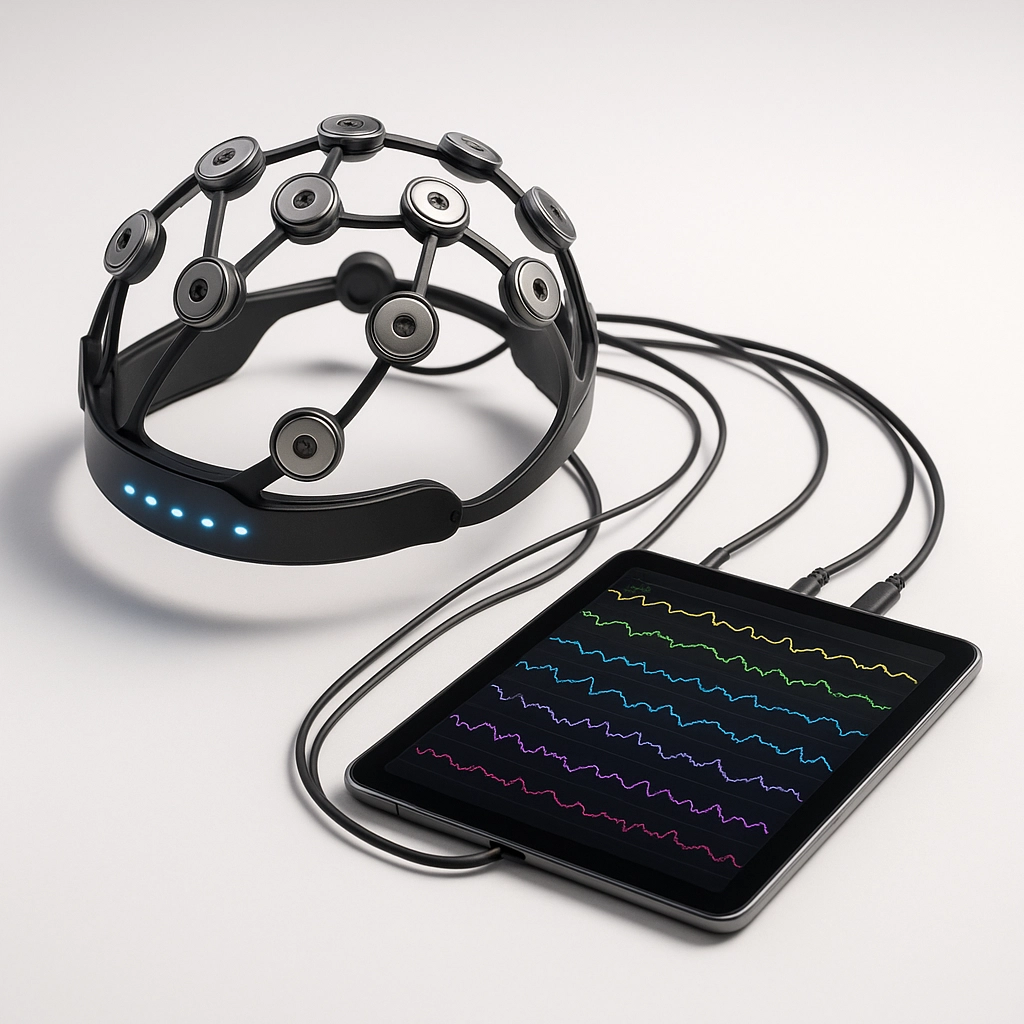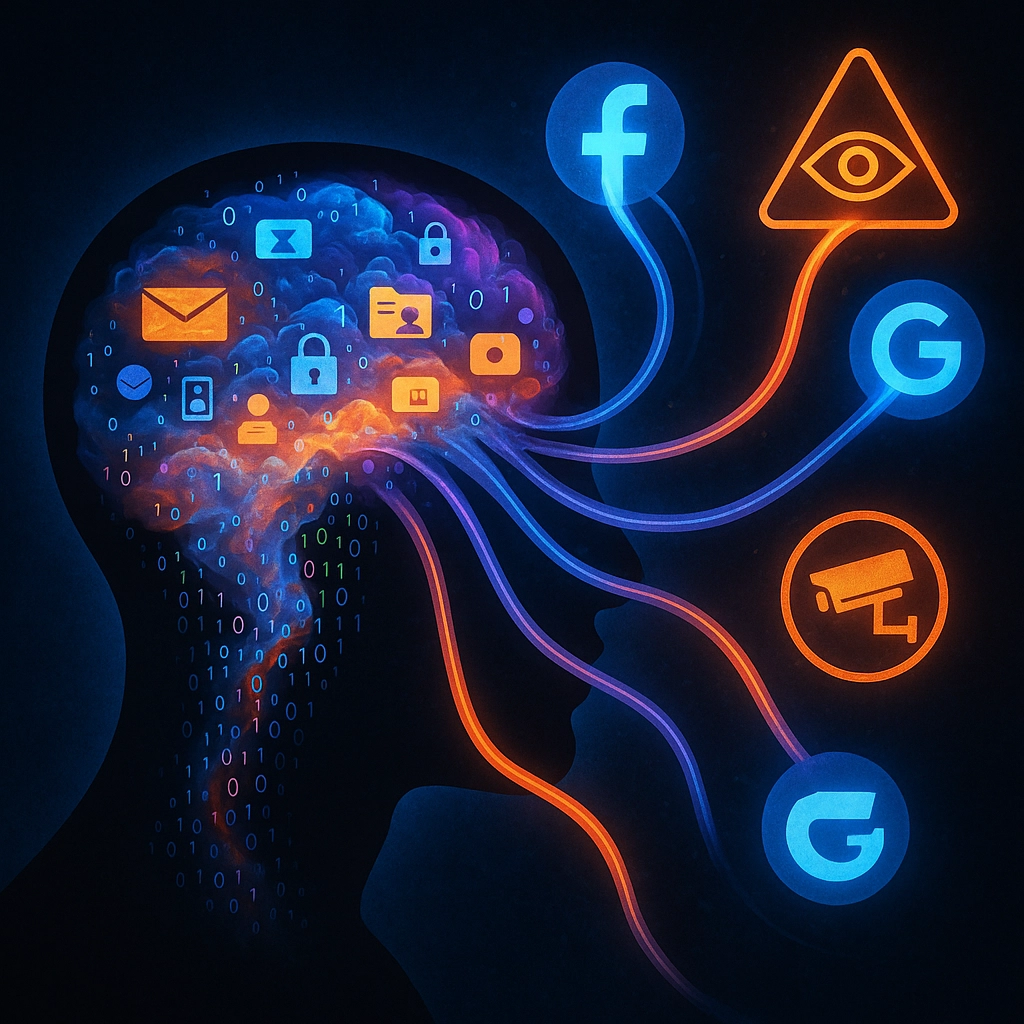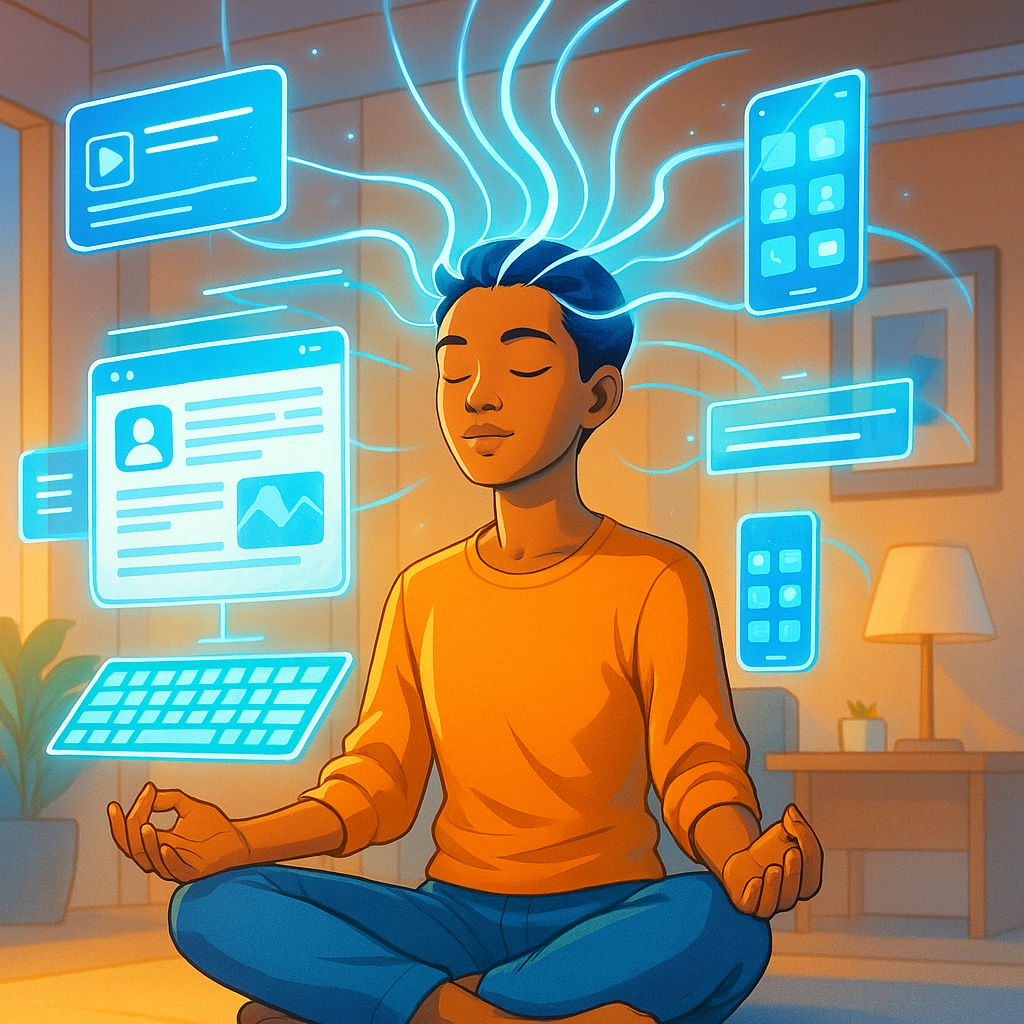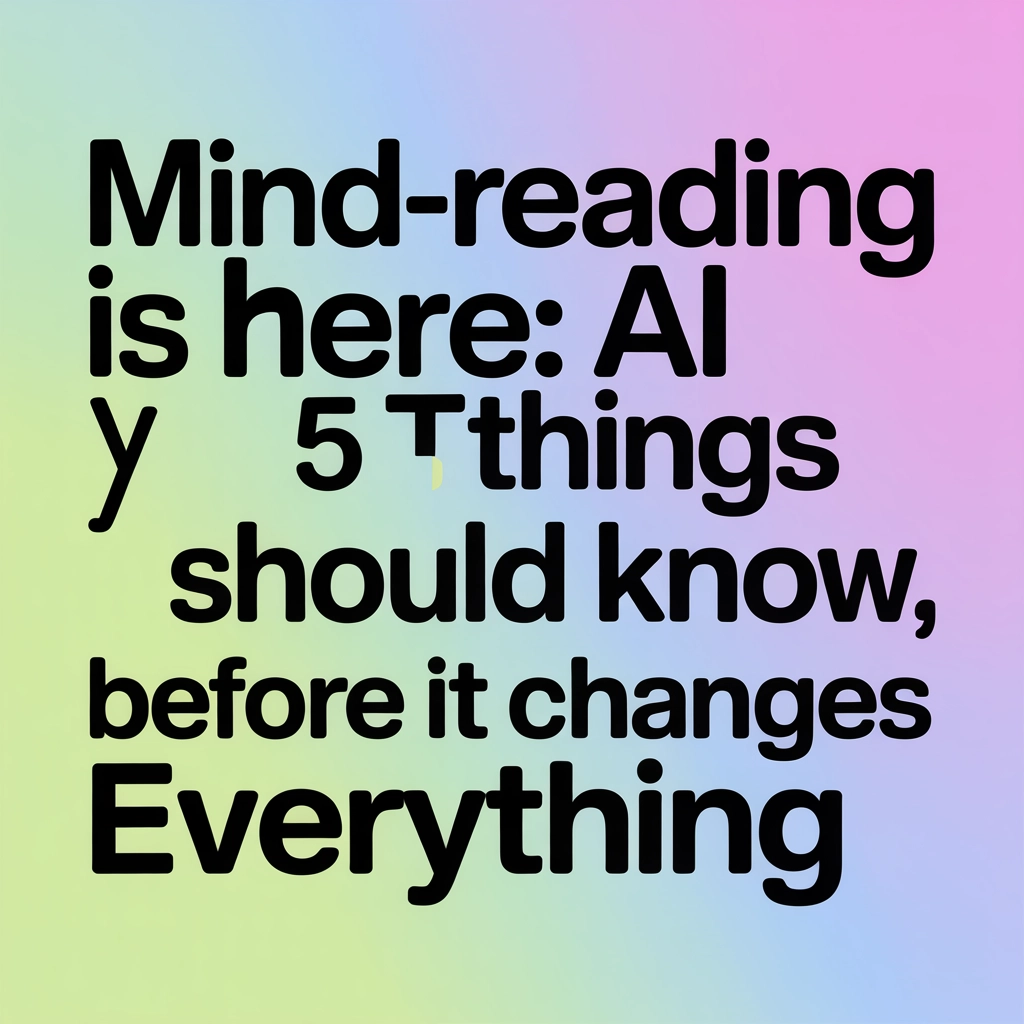Remember when reading minds was just something you'd see in X-Men movies? Well, plot twist: it's actually happening right now, and it's not Charles Xavier doing it—it's AI.
Reddit's been buzzing about breakthrough studies where computers can literally decode what you're thinking. We're talking about AI that can translate your thoughts into text with 80% accuracy. Yeah, you read that right. Your brain's internal monologue might not be so internal anymore.
But before you start panicking about robots reading your grocery lists and embarrassing childhood memories, let's break down what's really going on. Here are five crucial things you need to know about mind-reading AI before it completely changes how we think about privacy, communication, and being human.
Thing #1: This Isn't Science Fiction Anymore—It's Working Right Now
Forget everything you thought you knew about mind-reading being decades away. Meta just dropped some seriously mind-blowing research showing their AI can predict what you're about to type with 80% accuracy. They tested it on 35 volunteers who thought about typing sentences while wearing special brain-monitoring equipment.
The process is wild but simple: you think about typing "I love pizza," and their AI watches your brain activity to predict those exact words. It's like having a computer that can eavesdrop on your inner voice.

But Meta isn't the only one in this game. Researchers at the University of Texas, Austin created an AI system that can watch people's brains while they're watching silent movie clips, then accurately describe what they saw. Imagine showing someone a video of a dog catching a frisbee, and AI reading their brain to say "dog catches frisbee" without them saying a word.
In October 2024, researcher Chin-Teng Lin literally demonstrated live mind-reading during a TED Talk. Sure, it wasn't perfect—think autocorrect that gets it right most of the time—but watching someone's thoughts appear as text in real-time was pretty mind-bending.
My neighbor's eight-year-old asked me last week if robots could read his mind. I used to say "not yet, buddy." Now? I'm updating that answer to "well, actually…"
Thing #2: No Brain Surgery Required (Thank Goodness)
Here's the relief you've been waiting for: nobody's drilling holes in your head to make this work. These mind-reading systems use completely external equipment that just sits on your skull like a really fancy helmet.
Meta's system uses something called magnetoencephalography (MEG) and electroencephalography (EEG). Don't worry about the fancy names—basically, they're sensors that detect the magnetic and electrical signals your brain naturally produces. Think of it like those heart monitors that stick to your chest, but for your brain instead.
The equipment looks like:
• A helmet covered in sensors
• Special EEG headsets that detect brain waves
• Computers that process the signals in real-time
• AI algorithms that translate brain patterns into words
This non-invasive approach means you could theoretically try mind-reading AI without any medical procedures. Just put on the headset, think some thoughts, and watch the AI try to guess what's bouncing around in your head.

The fact that this works without surgery is huge. It means the technology could potentially become accessible to regular people instead of just being limited to medical patients or research volunteers willing to get brain implants.
Thing #3: Your Privacy Is About to Get Complicated
OK, let's talk about the elephant in the room: if AI can read your thoughts, what happens to privacy as we know it?
This is uncharted territory, folks. We've never had to worry about our actual thoughts being accessible to anyone but ourselves. Your inner voice, your random thoughts about that awkward thing you said in third grade, your mental grocery lists—all of that could potentially become data that can be captured and analyzed.
Think about it: we already worry about companies tracking our online behavior, our location, our purchases. Now imagine if they could track your thoughts too. The implications are staggering.
What happens when employers want to use mind-reading tech to monitor productivity? What about governments using it for security screening? Or advertisers wanting to know what you're really thinking about their products?
We don't have laws for this stuff yet. Our legal system is still figuring out social media privacy, and now we've got to tackle thought privacy too.
The scariest part? Once this technology gets more refined and accessible, the line between thinking something and communicating it might completely disappear. Your thoughts could become as public as your text messages if you're not careful about who has access to the tech.
Thing #4: Communication Is About to Get a Major Upgrade
On the flip side, mind-reading AI could completely transform how we interact with computers and each other in some pretty amazing ways.
Imagine never having to type again. You just think the email you want to send, and it appears on your screen. Need to search for something? Think your question, and Google responds. Want to text your friend? Just think the message.

This could be life-changing for people with disabilities who have trouble with traditional input methods. Someone who can't use their hands to type could suddenly have full access to digital communication just by thinking. People with speech difficulties could "speak" through their thoughts.
The speed factor is incredible too. You can think way faster than you can type. Average typing speed is around 40 words per minute, but you can think at roughly 150-250 words per minute. Mind-reading AI could unlock that natural speed for digital communication.
Gaming could get wild. Instead of button mashing, you'd just think about jumping, shooting, or moving. Creative software could respond to your artistic intentions before you even know how to express them manually.
We might be looking at the biggest leap in human-computer interaction since someone invented the computer mouse. The barrier between thought and digital action could basically disappear.
Thing #5: AI Isn't Just Reading Thoughts—It's Predicting Your Behavior
Here's where things get really interesting (and maybe a little unsettling): AI systems are getting scary good at predicting not just what you're thinking right now, but how you're likely to behave in different situations.
Researchers developed an AI called Centaur that can accurately predict human behavior across virtually any psychological experiment. This thing was trained on data from 160 different psychology experiments and can now predict how people will act in completely new scenarios it's never seen before.
We're talking about AI that can predict how you'll perform on memory tests, how you'll make decisions under pressure, how you'll react to moral dilemmas, and how you'll behave in social situations. It's like having a crystal ball for human psychology.

The AI doesn't just make random guesses either. It shows the same patterns of uncertainty and decision-making that real humans do. When it's unsure about something, it hesitates just like you would. When it's confident, it acts quickly—just like a person.
This goes way beyond just reading immediate thoughts. AI is developing deep models of how human minds work in general. It can simulate realistic human behavior and predict psychological patterns with frightening accuracy.
Think about what this means: AI systems might soon know you better than you know yourself. They could predict your choices before you make them, understand your motivations before you recognize them, and anticipate your reactions to situations you haven't encountered yet.
The combination of thought-reading and behavior prediction creates an AI that doesn't just know what you're thinking—it knows what you're likely to think next.
So here we are, standing at the edge of a world where our thoughts might not be private anymore, but where communication barriers could disappear entirely. Mind-reading AI is advancing faster than most people realize, and it's bringing both incredible opportunities and serious challenges.
The technology is already working, it doesn't require surgery, and it's getting more sophisticated every day. The question isn't whether this will change everything—it's how we'll adapt to a world where the line between thought and communication starts to blur.
What do you think: are you more excited about the possibilities or worried about the privacy implications of AI that can read minds?







